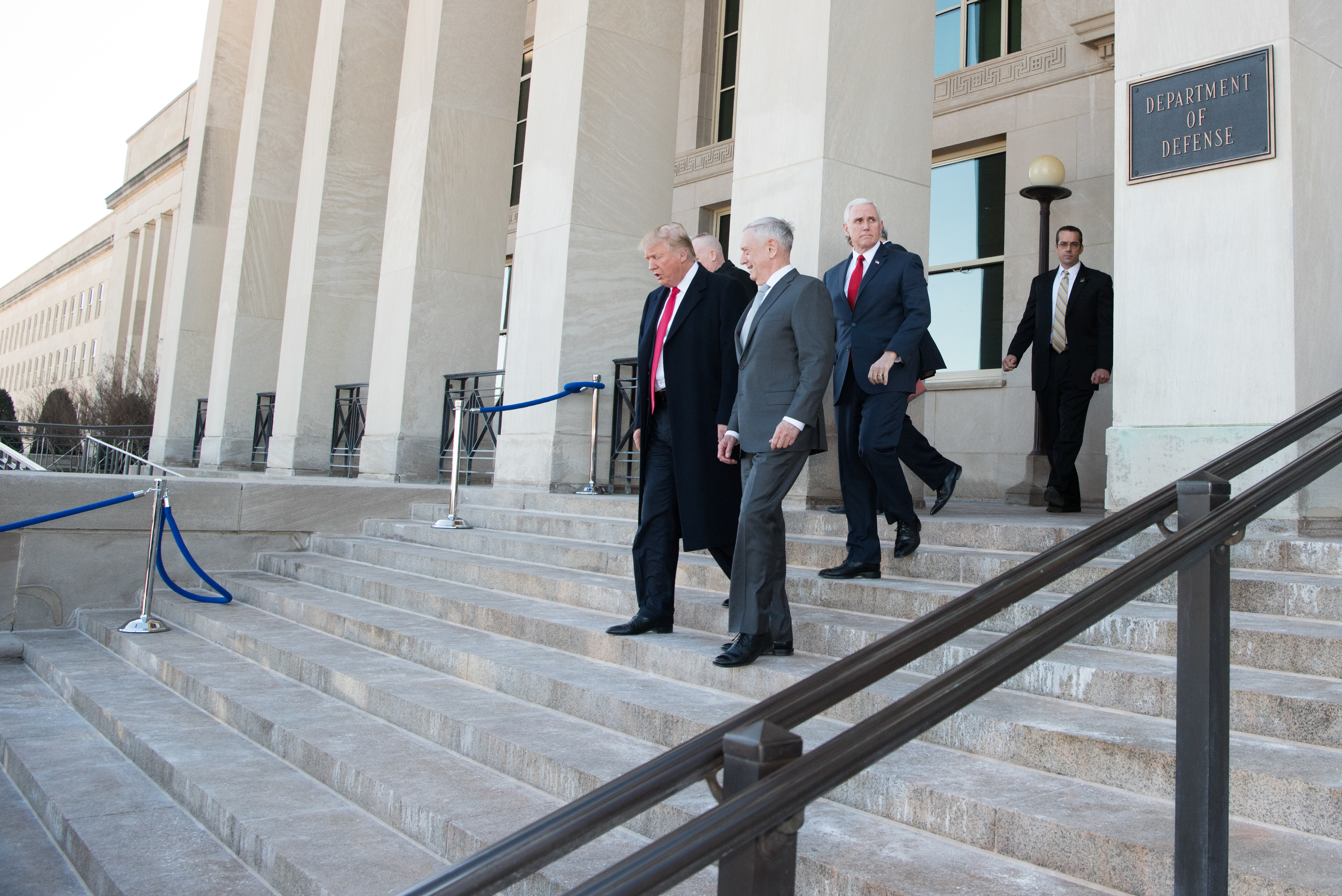
President Donald Trump signed the Fiscal Year 2019 National Defense Authorization Act (NDAA) clearing the path for a host of Navy and Marine Corps programs and policy initiatives to take effect.
The FY 2019 NDAA sets the spending and policy priorities for the Department of Defense. A separate appropriations process will provide the money for the Pentagon’s now authorized $717 billion-worth of programs.
“This measure continues to rebuild and repair our military while making needed reforms in the Pentagon. It takes important steps to confront the aggressive behavior of Russia, China, and others. Most of all, it helps ensure that our troops get what they need to carry out the missions they are assigned,” said a statement released by Rep. Mac Thornberry (R-Texas) chair of the House Armed Services Committee. “It is now essential that we follow this bill with matching appropriations before the beginning of the fiscal year.”
Meanwhile, Sen. John McCain, (R-Ariz.), commended both parties in both chambers of Congress, and the President, for what turned out to be a fast NDAA debate and approval process, compared to past years, including the FY 2018 bill which was finally passed halfway through the fiscal year.
“I’m very proud that the National Defense Authorization Act for Fiscal Year 2019 has been signed into law,” McCain said in a statement. “Today’s bill signing completes the historically quick process by which the NDAA has become law, and will help deliver our service members the resources they need to rise to the challenges of a dangerous world. I thank my colleagues in Congress for working together to craft this legislation, which honors our men and women in uniform and lives up to the traditions of bipartisanship and collaboration that have come to define the NDAA process.”
The FY 2019 NDAA authorizes the following programs and policies:
- $24.1 billion for shipbuilding, fully funding construction of 13 new battle force ships and accelerates funding for several future ship classes. The NDAA also authorizes an additional Ford-class aircraft carrier, allowing the Navy to sign a two-carrier contract.
- The potential to add two Block-V Virginia-class submarines to the current negotiations to purchase 10 Virginia-class subs.
- $3.2 billion to pay for development and design work of the new Columbia-class submarine.
- $2.3 billion to purchase 20 short takeoff and vertical landing F-35B Lightning II Joint Strike Fighters — the variant used by the Marine Corps.
- $1.1 billion to purchase nine F-35C fighters, the arrested landing variants used by the Navy.
- Authorizes multi-year contract authority for F/A-18 Super Hornets, EA-18G Growler aircraft and E-2D Advanced Hawkeye aircraft.
- Mandated reforms to the surface warfare community, which are designed to correct some of the factors believed to have contributed to the death of 17 sailors in two separate collisions involving guided-missile destroyers and merchant ships in 2017.
- Changes to the way the Navy and other service branches can recruit and promote officers.
- Production of several munition lines, including Long Range Anti-Ship Missile (LRASM), Joint Air-to-Surface Standoff Missile Extended Range (JASSM-ER), the MK-48 torpedo, and the Harpoon missiles.
- A policy barring China’s navy from participating in future Rim of the Pacific naval exercises, unless a waiver is granted by the Secretary of Defense. China’s invitation to the 2018 RIMPAC was revoked earlier this year because of the nation’s aggressive actions in the South China Sea.





